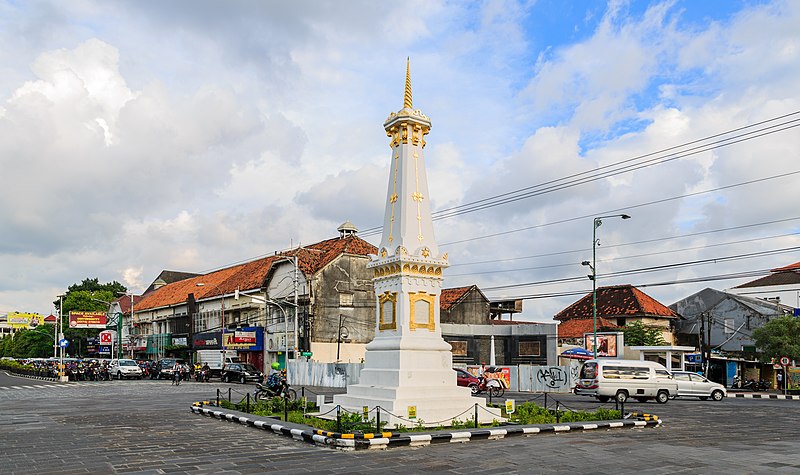Yogyakarta, often simply called Jogja, is a cultural and historical gem nestled in the heart of Java, Indonesia. This vibrant city serves as the cradle of Javanese civilization, boasting a rich heritage, artistic traditions, and a unique blend of ancient and modern influences. From majestic temples and royal palaces to lively markets and a thriving arts scene, Yogyakarta offers visitors a captivating journey into the soul of Indonesian culture.
At the heart of Yogyakarta stands the Kraton, the royal palace of the Sultan of Yogyakarta. This grand complex not only serves as the residence of the Sultan but also acts as the center of Javanese culture. The Kraton showcases elegant Javanese architecture, with its intricately designed pavilions, courtyards, and gardens. Visitors can explore the various sections of the palace, including the museum that displays artifacts related to the Sultanate’s history and cultural heritage.
Adjacent to the Kraton is Taman Sari, the Water Castle, a historical pleasure garden built in the 18th century. Taman Sari features a series of bathing pools, pavilions, and underground passages, offering a glimpse into the opulence and leisure enjoyed by the royal court. The unique blend of Javanese and European architectural styles makes Taman Sari a fascinating destination for history enthusiasts and those seeking a tranquil retreat.
The ancient temple complex of Prambanan, a UNESCO World Heritage site located just outside Yogyakarta, is a testament to the region’s Hindu-Buddhist past. Prambanan comprises a series of towering temples dedicated to various Hindu deities, the most prominent being the Shiva temple. The intricate carvings, towering spires, and the surrounding lush landscape create a mystical ambiance, inviting visitors to explore the spiritual and artistic legacy of the region.
Borobudur, another UNESCO World Heritage site, is a majestic Buddhist temple located nearby, making it one of the most iconic landmarks in Yogyakarta. This colossal structure, dating back to the 9th century, comprises nine stacked platforms adorned with intricate reliefs and hundreds of Buddha statues. The elevated setting of Borobudur allows visitors to witness panoramic views of the surrounding landscapes, creating a serene and contemplative atmosphere.
Yogyakarta is also known for its unique form of traditional puppetry known as Wayang Kulit. The performances, often accompanied by a gamelan orchestra, depict stories from ancient epics and legends. Visitors can experience the captivating art of Wayang Kulit at dedicated performances or even witness the intricate process of puppet-making in local workshops.
The city’s Malioboro Street is a bustling thoroughfare that encapsulates the energy and vibrancy of Yogyakarta. Lined with shops, street vendors, and traditional markets, Malioboro is the perfect place to immerse oneself in the local atmosphere. Visitors can explore a myriad of goods, from batik textiles and traditional handicrafts to local snacks and souvenirs. The street comes alive in the evening when street performers, food stalls, and the lively ambiance create a dynamic and engaging atmosphere.
Affectionately known as the “Krebet Market,” the Beringharjo Market is another bustling marketplace in Yogyakarta. Established in 1758, it is one of the oldest markets in the city. Here, visitors can witness the daily life of locals as they navigate through the maze of stalls selling spices, textiles, traditional herbs, and various local products. Beringharjo Market provides a sensory experience, with vibrant colors, aromatic spices, and the hustle and bustle of daily commerce.
Yogyakarta’s culinary scene is a tantalizing journey through Javanese flavors and traditional Indonesian dishes. Gudeg, a local specialty made from young jackfruit stewed in coconut milk, palm sugar, and spices, is a must-try delicacy. Other culinary delights include nasi gudeg, sate klatak, and bakpia, a sweet pastry filled with mung bean paste. The vibrant street food scene and local warungs (small eateries) offer an authentic culinary adventure for those eager to savor the diverse tastes of Yogyakarta.
In conclusion, Yogyakarta stands as a living testament to Indonesia’s rich cultural heritage, blending ancient traditions with a modern and dynamic spirit. From the royal elegance of the Kraton to the mystical allure of Borobudur and the vibrant energy of Malioboro Street, Yogyakarta invites visitors to explore its multifaceted charm, offering a journey that seamlessly weaves together history, art, and the warmth of Javanese hospitality.

